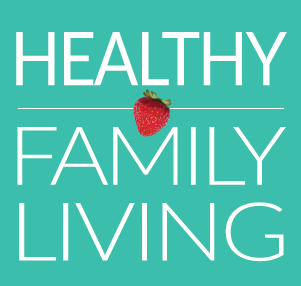We spend so much time in the summer worried about protecting ourselves from the sun, and most of the winter seeking sunshine for Vitamin D. It can be confusing! Vitamin D is one of those vitamins that everyone knows we're supposed to take, but nobody really knows why or how much.
Herbaland has done a deep dive into Vitamin D to clear up some questions about what it does for us and why our bodies need it. This information should not replace advice from your healthcare professional.
What is vitamin D?
As one of the four fat-soluble vitamins, Vitamin D is readily stored in fat cells within the body, which means while you should be taking it daily, if you forget for a few days, it’s nothing to lose your cool over.
The receptor for Vitamin D is found in many different cells and regulates the expression of more than 900 genes involved in a wide variety of physiological functions. Let’s repeat that: 900 genes—a whole lot more than you probably thought possible and it should denote just how important it really is.
Where can I get vitamin D?
When it comes to food sources of Vitamin D, it’s a bit of a challenge to get adequate amounts if you follow a plant-based diet. Because mushrooms are about the only plant food that contains D3, your next best bet is to rely on fortified foods, which shouldn’t really be the main staple of your diet, or through direct supplementation—the preferred method for vegans.
Whole foods are the best source of Vitamin D and if you eat animal products, you’re in luck. Vitamin D is abundant in all sorts of them, including egg yolks, butter (dairy), meat & fish/seafood.
What kind is better - D2 versus D3?
When it comes to taking Vitamin D, there are two options for you to choose from: ergocalciferol, also known as D2, and cholecalciferol, known as D3. The main difference between the two lies in, of course, their chemical structure, but also that D2 is limited to plant sources, while D3 is found in animal foods and fortified foods. D3 is also the form synthesized by the skin.
However, it's important to understand is that while both are absorbed, D3 appears to be more effective at raising serum levels of Vitamin D than D2, hence why most people will opt for the D3 form and is what’s also found in Herbaland's Vegan D3 and B12 gummies and Calcium with Vegan D3 gummies.
Benefits of Vitamin D
Vitamin D is a pretty powerful vitamin. You can think of it as the superhero of vitamins for many reasons:
Keeps your immune system strong
Now would be a good time to get your Vitamin D gummies out. With the lack of sun we’re getting and the seemingly non-stop spread of colds and flu, maintaining your Vitamin D level is critical to keeping those bugs well outside your social circle. That’s because it modulates both the adaptive and innate immune system, specifically antimicrobial activity and antigen presentation (innate) and T and B lymphocyte function (adaptive) responses.
A deficiency of Vitamin D has been linked to the development of autoimmune conditions like rheumatoid arthritis (RA), MS, diabetes, and IBD, as well as increased susceptibility to illness and infection.
Maintains bone strength
Vitamin D plays a huge role in keeping your bones healthy & strong. It is responsible for regulating the uptake of calcium & phosphorus from the gut, but also for stimulating osteoclast differentiation and calcium reabsorption in the kidneys, as well as promoting mineralization of the collagen matrix in bone that maintains strength.
When you’re deficient in Vitamin D, parathyroid hormone (PTH) stimulates calcium mobilization. It triggers osteoclasts to reabsorb bone minerals, thereby liberating calcium into the blood & drawing it out of your bones.
Regulates your mood
The whole thing about lack of sunshine and mood (aka seasonal affective disorder) may actually have some merit behind it. Turns out that Vitamin D is a powerhouse for treating depression due to its role in synthesizing serotonin, your happy hormone, but also because Vitamin D receptors are present in areas of the brain responsible for regulating mood. Want to stay happy throughout all seasons? Supplement with Vitamin D.
Checks your glucose levels
There are a lot of things we do that can contribute to glucose and insulin imbalances. Things like high sugar diets, refined carbohydrates, exercise (yes, it’s good but it mobilizes glucose), lack of sleep, and a whole lot more. And even as you age, glucose levels start to get a little out of whack.
As it stands, Vitamin D can improve insulin sensitivity through its effect on its muscle cell receptors by increasing insulin receptors or increasing the sensitivity of the insulin receptor to insulin. Also, it plays a role in the modification of the function of β-cells of the pancreas, the cells that produce and secrete insulin. Insulin resistance and high circulating insulin are both risk factors for type 2 diabetes.
An important part of pregnancy
Ladies, if you’re looking to start a family now or anytime in the future, you need Vitamin D. It plays an important role in fertility by acting on both the ovaries and the endometrium. In the ovaries, Vitamin D can enhance ovulation by altering AMH (anti-Mullerian hormone) signaling, increasing FSH sensitivity, and increasing progesterone production.

Wondering what to do with the kids in Metro Vancouver this weekend, or what to make for dinner? You can find it at HealthyFamilyLiving.com! From the Sunshine Coast to the Fraser Valley, we’re the best online resource for busy parents looking for practical tips for healthy, active, sustainable living. For the latest on family events, outdoor adventures, birthday parties, camps & classes and kid-approved recipes, follow us on Facebook and sign-up for our parent-approved e-newsletter!




